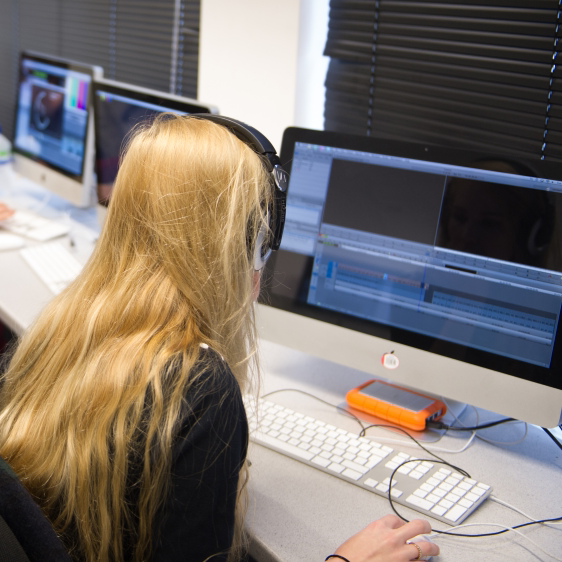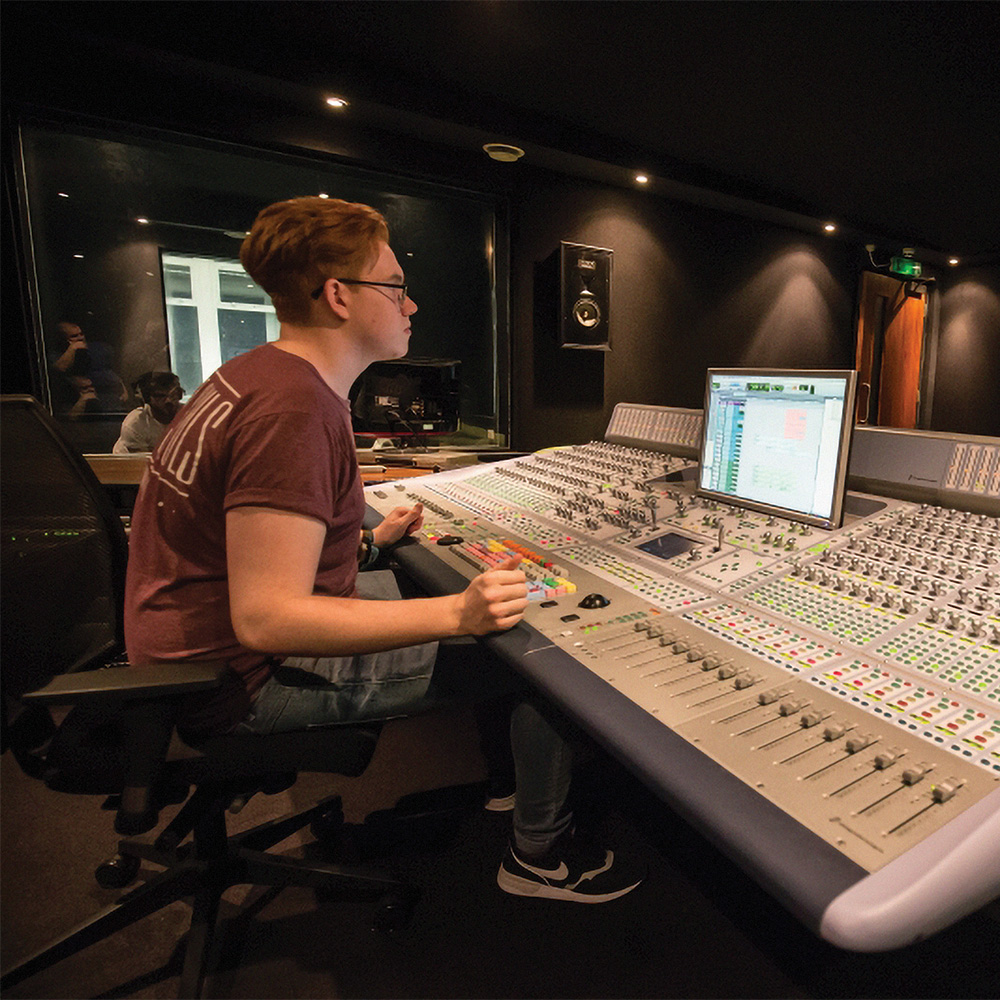Every film goes through three stages; pre-production, production and post-production. Post Production is the rewarding creative activity that can make a good film or television programme great! If you choose to work as an editor, ultimately it’s your version that hits the screen. This is the final, and often most creative stage of the process.
You will be working with various source materials, from Hollywood films, and prime-time TV, to footage you shoot yourself. Futureworks collaborates with producers throughout the country to get its students high-class broadcast standard footage in a wide range of genres. In doing this our students replicate real programmes previously shown at the cinema and on TV, giving them a perfect grounding for life in the post-production industry.


In the area of post-production this could be as a freelance editor or post-production artist. We help you make contacts and partnerships that could last the whole of your career. Whether that’s working with independent directors, becoming associated with film production companies or working for an agency or design consultancy, the aim is the same: to help you achieve your ambition of developing a post-production career.
In today’s film industry, many roles are carried out by trusted freelancers or teams of freelancers. Therefore, Futureworks prepares students by giving them everything they need to embark on a successful and long-term freelance career.
To be considered for this course, you will require 104-120 UCAS points.
This could be gained via a number of qualifications, for example:
You can apply for this course by applying directly to Futureworks. Alternatively, you can apply via the UCAS system. The UCAS codes for this course are as follows:-
UCAS Code: P313
Institution Code: F98
If you have any questions please call us on 0161 214 4602 or email admissions@futureworks.ac.uk
Successful applicants will be invited to an interview where you will have the opportunity to talk about your work, influences and interests. A guide will be sent with your interview details to help you prepare for your interview. Ideal applicants will have a keen interest in film, television, and post production. You are welcome to bring any relevant examples of work with you, if you have them. This is optional and a portfolio is not required for applications to be considered for this course.